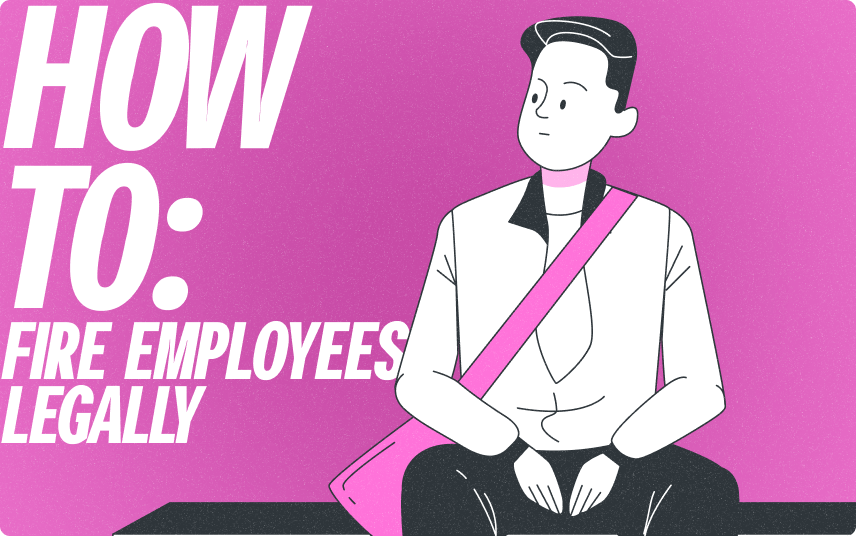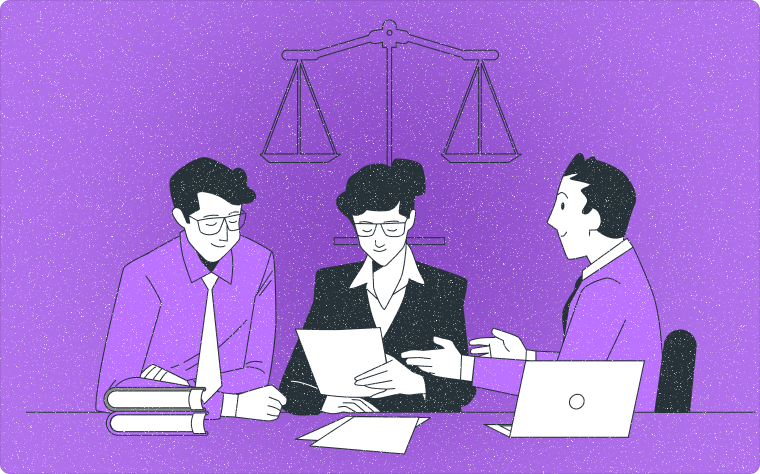How to Fire Employees Legally

Firing an employee is never an easy task, but it is sometimes necessary for the success and well-being of a company. However, it is important to understand the legal considerations and steps involved in terminating an employee to avoid any legal issues that may arise. Knowing how to properly fire an employee can help protect the company and ensure a smooth transition for all parties involved.
One of the most important legal considerations when firing an employee is understanding the concept of at-will employment. This means that an employer can terminate an employee at any time and for any reason, as long as it is not illegal. However, there are some exceptions to at-will employment, such as when an employee has a contract or is protected by anti-discrimination laws.
To legally terminate an employee, there are certain steps that should be followed:
When it comes to the termination meeting, it is important to handle it with professionalism and respect. Avoid saying anything that could be considered discriminatory or retaliatory. It may also be helpful to have a witness present during the meeting to prevent any misunderstandings.
To avoid legal issues with firing employees, it is important to be aware of and follow employment laws. This includes avoiding discrimination and retaliation claims, handling unemployment claims appropriately, and protecting company information. It is always advisable to seek legal counsel before terminating an employee to ensure all legal requirements are met.
Legal Considerations for Firing Employees
When taking into account legal considerations for terminating employees, it is vital to follow both employment laws and company policies. It is important to make sure that the reason for termination is in line with documented performance or behavioral issues. Conduct a fair and unbiased investigation, give the employee a chance to respond, and provide adequate notice as required by labor laws. If uncertain about the process or potential consequences, seek legal advice.
It is crucial to handle employee termination with empathy and professionalism, maintaining transparency and respect throughout the process.
What is At-Will Employment?
At-will employment refers to the ability of an employer to terminate an employee at any time, for any legal reason, and for an employee to leave their position at any time, for any reason. This concept also suggests that the terms of employment can be altered or amended by the employer without prior notice.
What are the Exceptions to At-Will Employment?
Exceptions to at-will employment include:
These exceptions address the question, “What are the Exceptions to At-Will Employment?”
Get more out of your business
Get the best employee engagement content every week via mailing list

Steps for Legally Firing an Employee
Firing an employee is a difficult and often unpleasant task for any employer. However, it is essential to handle the process in a legal and ethical manner. In this section, we will discuss the necessary steps for legally firing an employee. From documenting performance issues to providing written notice of termination, we will cover the important aspects of this sensitive process. By following these steps, employers can ensure that they are handling employee terminations in a fair and lawful manner.
1. Document Performance Issues
When documenting performance issues, it is important to remain objective and focus on facts rather than assumptions or personal opinions. Ensure that the documentation is accurate, clear, and securely stored to support any future actions related to the employee’s performance.
2. Follow Company Policies and Procedures
3. Give the Employee a Chance to Improve
4. Provide Written Notice of Termination
When Abraham Lincoln was terminated from his first job at a general store, he was given a written notice that clearly stated the reasons for his termination. Despite this setback, Lincoln went on to become one of the most influential presidents in American history.
5. Consider Severance Pay
Pro-tip: When discussing severance pay, it is advisable to seek guidance from legal or HR professionals to ensure compliance with applicable laws and regulations.

How to Handle a Termination Meeting
When it comes to terminating an employee, it is important to handle the situation with professionalism and legality. The termination meeting is a critical step in this process, as it sets the tone for how the employee will receive the news and how the company will handle the termination. In this section, we will discuss the key elements of a termination meeting, including what to say and what not to say, in order to ensure a smooth and legally-compliant process.
What to Say and What Not to Say
During a termination meeting, it is crucial to communicate in a professional and compassionate manner. Clearly state the reasons for the decision, avoiding any personal criticisms. Show appreciation for the employee’s contributions and offer assistance during the transition. It is important to not make promises that cannot be kept and to refrain from engaging in arguments or debates.
Pro-tip: To ensure that you convey all necessary information in a respectful and legally compliant manner, always prepare a script for the termination meeting.

Avoiding Legal Issues with Firing Employees
Firing an employee can be a difficult and sensitive process, but it is also important to ensure that it is done legally to avoid any potential legal issues. In this section, we will discuss the key steps to take in order to avoid discrimination claims and retaliation claims when terminating an employee. We will also cover how to handle unemployment claims and protect company information during the firing process. By following these guidelines, employers can protect themselves and their businesses from potential legal consequences.
How to Avoid Discrimination Claims
Pro-tip: Regularly review and update company policies to align with current anti-discrimination laws and best practices to further prevent discrimination claims.
How to Avoid Retaliation Claims
How to Handle Unemployment Claims
How to Protect Company Information
How to Avoid Mistakes and Ethical Bounds when Firing Employees
Legal Steps for Firing Someone
Business Considerations for Firing Employees
When it comes to business considerations for terminating employees, it is essential to follow legal regulations while also ensuring fair treatment. Common reasons for termination include:
It is also important to provide adequate notice, severance packages, and assistance in finding new employment to mitigate any negative repercussions. Employers must also take into account the potential impact on team morale and workplace culture when making such decisions.
Potential Reasons for Firing Employees
Justified causes should always align with potential reasons for firing employees, such as consistent underperformance, ethical misconduct, breach of company policies, or disruptive behavior affecting workplace harmony.
When considering termination, it’s crucial to follow legal protocols, provide documented warnings, and offer support when feasible. HR professionals should handle dismissals with utmost sensitivity and ensure transparency throughout the process.
Summary
When summarizing the legal process of terminating employees, it is crucial to follow all outlined procedures to ensure fairness and compliance with employment laws. This includes conducting a comprehensive investigation, clearly stating the reasons for termination, offering assistance with transitioning to new employment, and maintaining professionalism and empathy throughout the process. Ultimately, adhering to legal guidelines not only protects the organization but also the employee involved.
Best of luck.
Frequently Asked Questions
Can an employee threaten violence against their coworkers or the company and still be legally terminated?
Yes, threatening or engaging in violent behavior towards others is grounds for immediate firing. Employers have the responsibility to provide a safe and secure work environment for their employees, and any behavior that jeopardizes this is a valid reason for termination.
What are some mistakes to avoid when firing an employee?
Some common mistakes to avoid when terminating an employee include not having a valid reason for the firing, not following proper procedures and laws, not documenting violations or performance issues, and not providing written confirmation of the termination. These mistakes can lead to legal complications and cause harm to the employer’s reputation.
Can an employee be fired for their off-duty behavior?
Yes, an employer can terminate an employee for their behavior outside of the workplace if it violates the company’s code of ethics or is illegal. However, there may be restrictions or legal consequences to consider, and it is important for employers to clearly outline their expectations for off-duty behavior in employment contracts and employee handbooks.
What is the proper way to fire an employee for poor job performance?
Firing an employee for poor job performance should be a last resort, and employers should first consider other options, such as providing a performance improvement plan or offering additional training and coaching. If termination is still necessary, employers must have documentation of the poor performance and follow proper procedures and laws to avoid potential legal consequences.
Can an employee be fired for taking time off for military service?
No, employers cannot terminate an employee for taking time off for military service, as it is protected by USERRA. Employers must also ensure that the employee’s job is protected and they are able to return to their position after their service. Firing an employee for taking military leave is considered illegal and can result in legal consequences for the employer.


